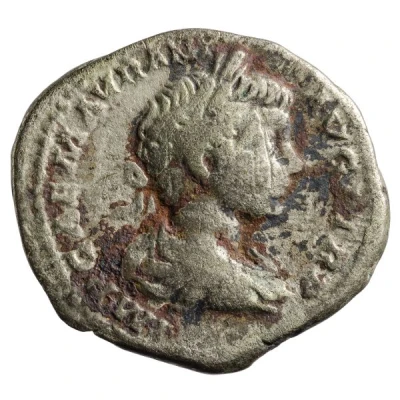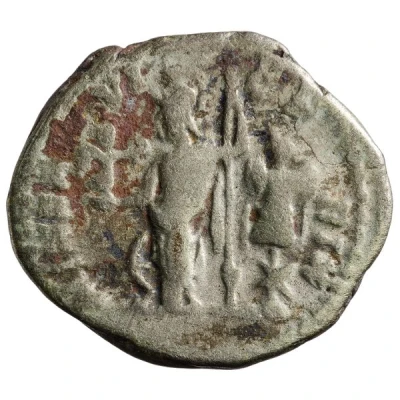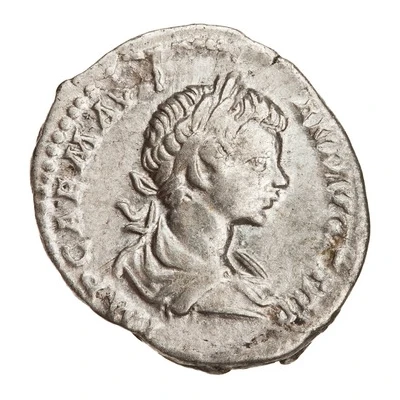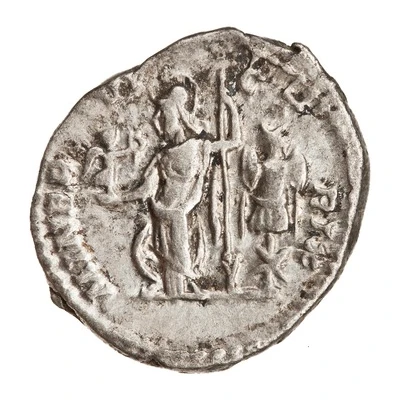


© Münzkabinett der Universität Göttingen (CC BY-NC 4.0 DE)
Denarius - Caracalla MINER VICTRIX; Minerva and Victory
198 year| Silver | 3 g | 19 mm |
| Issuer | Rome › Roman Empire (27 BC - 395 AD) |
|---|---|
| Emperor | Caracalla (Marcus Aurelius Antoninus Caracalla) (198-217) |
| Type | Standard circulation coin |
| Year | 198 |
| Value | 1 Denarius |
| Currency | Denarius, Reform of Augustus (27 BC – AD 215) |
| Composition | Silver |
| Weight | 3 g |
| Diameter | 19 mm |
| Shape | Round (irregular) |
| Technique | Hammered |
| Demonetized | Yes |
| Updated | 2024-10-05 |
| Numista | N#273042 |
|---|---|
| Rarity index | 100% |
Reverse
Minerva, helmeted, draped, standing left, holding Victory in extended right hand and spear in left hand; at feet, shield; behind, trophy.
Script: Latin
Lettering: MINER VICTRIX
Translation:
Minerva Victrix.
Minerva, the victorious.
Comment
Example of this type:Münzkabinett der Universität Göttingen
Source:
Online Coins of the Roman Empire (OCRE)
Interesting fact
The Denarius - Caracalla coin was minted during the reign of Emperor Caracalla, who ruled the Roman Empire from 211 to 217 AD. The coin's obverse side features an image of Caracalla's portrait, while the reverse side depicts Minerva, the Roman goddess of wisdom and war, standing next to Victory, holding a wreath and a trophy. The coin's design was meant to symbolize the empire's military victories and the emperor's wisdom and leadership. It's worth noting that the Denarius - Caracalla coin was made of silver, which was a valuable and widely used metal during ancient times. The coin's weight of 3 grams is relatively small compared to modern-day coins, but it was a significant amount during the Roman Empire era. Overall, the Denarius - Caracalla coin is an interesting piece of history that provides insight into the Roman Empire's culture, politics, and economy during the 3rd century AD.

